|
Have you ever had a verse and a chorus that didn't fit together? Here are some ideas to help you 'bridge that gap' and 'put the pieces together' Techniques to Establish a Seamless Flow in Your Musical CompositionThe art of composition is dynamic. Various elements that, when harmonized effectively, take the listener on a journey. How do you ensure your music has a cohesive flow between different sections of a song? Whether transitioning between verse and chorus or introducing a bridge, the seamless flow of musical elements enhances the overall listening experience. In this article, we'll explore techniques to weave the fabric of your composition and continuity and flow. Melodic and Motivic ContinuityA motif is like the 'theme' of a song. One of the fundamental building blocks for a composition is maintaining melodic and motivic continuity. By repeating key melodic motifs or musical ideas throughout various sections, you provide a familiar thread that ties the song together. This not only creates a recognizable identity but also facilitates a smooth transition between different parts. Composers often use this technique in Movies. Next time you're watching one, listen to see if you can hear them. Harmonic ProgressionA harmonic progression is the way the chords and notes flow. A consistent harmonic progression can act as a form of musical glue, connecting disparate sections into a unified whole. Imagine a chord progressions that smoothly flows between verses and choruses, or a note common that ties the two together. It can guide your listener through the emotional nuances of your composition without disrupting the flow of their experience. Predictable yet artful harmonic movement can contribute to a sense of coherence and unity. Rhythmic Consistency & VariationRhythm serves as the heartbeat of a song. It can be the most influential factor in the overall feel of a composition. Consistent rhythmic patterns or gradual rhythmic variations contribute to the seamless flow between sections, although abrupt changes can be a stylistic consideration. Keep in mind the context of what mood you're trying to evoke through your music. concepts like syncopation, rhythmic themes, or evolving patterns can maintain a listener's interest while bridging different parts of your composition. Lyrical ThemesThe marriage of music and lyrics is a potent force in composition. Repeating lyrical themes or employing consistent or connected 'imagery' in lyrics can establish a thematic connection between verses, choruses, and other sections. Lyrical continuity reinforces the narrative and emotional resonance of the song. Dynamic Buildups and ReleasesDynamics are changes in the 'energy levels' in the song. Imagine a crescendo (buildup) or a FAT DROP. Strategic use of dynamics heightens the impact of your song. Gradually building intensity in one section and releasing it in another can create a satisfying ebb and flow. Dynamic shifts can serve as emotional signposts, guiding the listener through the peaks and valleys of your musical landscape. Much more interesting than a song that is the same from start to finish. Transitional ElementsIncorporating transitional elements, such as an instrumental interlude, fill, break, drop, or a new musical passage, can act as a bridge between sections. These elements serve to prepare your listener for upcoming changes while transitioning between parts and can help maintain engagement and interest from start to finish. Instrumentation and ArrangementYour choice of instrumentation and arrangement plays a pivotal role. When do you introduce a new element? Consistency or intentional variation in these elements contributes to the overall tonal palette of your composition. It's a key element of good orchestration, where each section complements the others, reinforcing the sense of unity of the piece Tempo and Meter Changeswhile less common in pop music, Strategic changes in tempo or meter can add a layer of complexity to your composition. These shifts should feel deliberate and enhance the musical narrative, guiding the listener through the evolving landscape of your song. ConclusionIn musical composition, the pursuit of a cohesive flow is balance of the elements we talked about in this article combined with experimentation, creativity, and a deep understanding of the emotional essence you'd like to convey to your listener. These are the keys to achieving a seamless connection between different sections. By practicing these techniques, you can elevate your ability to craft compositions that not only resonate with your audience but also push the limits of your musical abiliities.
Once upon a time I set out to record some Drum Loops. Today I Revisited the concept. This time around I sought help I mean, lets be honest here, It'd be better to leave the drumming to the drummers.  The Goal going in was to Sample the entire Drum kit. Bring your choice pieces, mic it, warm up. Record each drum in every possible way. 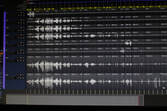 So we Warmed up, finished sampling the kit into this session here. Luckily, the setup was quick and efficient. Tracking went smoothly. we captured each Sample and then about a half-dozen loops. Next up is getting the loops Mixed, I won't get too deep into the weeds on the technical side. Light EQ mostly. Some Minor Edits. Later, the samples will be Exported as individual files and arranged by velocity. seeking to learn from experienceI'm Here to try. To try and to fail Repeatedly, Unapologetically. To push boundaries, To open doors, To expand horizons Face fears, and to seek perfection... But not to expect it. I'm Here to have compassion to listen with empathy To stay humble To always strive for the best path Moving forward Making failure your main objective -
What happens when you're afraid you're going to be wrong? Speaking from experience with this one here because it's something I struggle with regularly. Constantly seeking perfection instead of jumping to it and figuring out the minutae later, one can end up seeking what may never come ending up in an endless spiral of preparation with no activity to back it up... The cure for imposter syndrome So what do you do? well, do something! Do anything! It's not like those people out there waiting to hear your music or hear your message are out to judge you, Sure some might be, but who spends their life worrying about trolls on the internet? If they do it should be like water rolling off a wax surface. Thick skin. Having such skin, you know, those nay-sayers were not the right people for your art anyways, so who cares what they say. If your message resonates, you WILL recieve confirmation that what you're doing is on the right track. Such is the nature of perfection It doesn't have to be all perfect all the time, Welcome to the realization of being human. We're here to experience, to grow, to try, to fail, to learn, and eventually achieve mastery over our pursuits. afraid to lose So do the costs outweigh the rewards? You've heard people say that you have to spend money to make money right? Well this is partly true for musicians also. Every step of the way from songwriting, to recording, to production, to launch. The same can be said for energy. How you spend it, the value it brings to other, and the return on the investment of it... Want to write a guitar song but don't own a guitar? would getting your hands on one help you achieve the goal? Want to record an album but don't have gear? would getting some help you achieve the goal? or would it be a more productive use of your time to go find someone to help you who is already set up? want to release that album to more people than friends and family? There are people who love your music, Would it be worth reaching out? would the effort be worth it to you? Or would you try learn the tools of E-commerce to try to do it yourself? worried about what others think of you If you're scared, why? If the fear is holding you back, face it head on. Many times you'll realize 'hey if this experiment goes absolutely sideways, I'll still be able to make ends meet. It won't be the end of the world if I do fail, and I'll have gained some valuable experience from the whole process.' Action is the catalyst for opportunities. Take action, screw fear. Sit down for a moment and ask yourself, what is the worst thing that could happen if I attempt this thing I want to do? count backwards 5-4-3-2-1 go... Don't complain, Seriously, Stop complainingPlease don't complain that your gear isn't good enough, or that you're not good enough. Seriously, Stop complaining. Recording is one part artform and one part physics. You as an artist should be learning to trust yourself. That's right, not every project is going to be perfect. Get over it, It doesn't actually matter as much as you might think. Here are 3 considerations to make your recording sound 'good'1: quality on the input This comes down to your performance, and your overall sound. It's like this, if you practice your song. You will get better results. It also ties into the quality of your gear. Is your guitar set up properly? does it stay in tune? do you need fresh strings? do you have clean pre-amps for your microphones? 2: Put things in balance When you have your tracks, lets say you took 3 guitar takes, put them together in a way that blends smoothly. Lets say you've added some soft-synths? and some midi drums. Do they blend? did you put on your engineering hat and use your mixing tricks to make space so that everything sounds good? 3 Finishing touches. Adding embelleshments, automation, Final adjustments for dynamics, keeping the song interesting from start to finish. how you get there doesn't matterHere at Gene Media, we don't care how you get there. We recognize that everyone is unique in their own approach, or as a smart author once said, "we each have our own game." The whole point is putting trust in yourself, trust in your ears, trust in your process, and trust your ability.
A song can be four chords. That's not wrong, but if your chord progression is simple, then consider the Principles of contrast to make your song POP. where do you put contrast in your song?Where do you put contrast in your song? What are your song's elements?
Song Structure Have you thought about how your song is laid out while the concept is fresh? I recommend as good practice to outline a few basic song-structures for the style of music you write. it could look like one of these examples:
or
Helps with efficiency to simply put things into a place where you dont have to worry about structure. Why use this approach? because it takes the struggle out of putting the songs together because that part is already done. Just build the pieces to fit and stick them in. Songwriting En-masse, just remember your Contrast considerations. Smooth transitionshow can you switch it up without being abrasive? So now that we're fitting the pieces in, I guess you'll need pieces first. This is where creativity and imagination come into play. During your daily (and i hope it's daily) practice, noodle around until you come up with something. Some folks like to play from scales or books for inspiration. others simply jam. The point is to come up with something that sounds good to you. Remember it's music. There isn't a one-size-fits-all approach to this stuff. how can you switch it up without being abrasive Abrupt transitions are not always bad. To me it depends on the characteristics of the genre, some being friendlier to rule-breaking than others.
Should you consolidate your online presence?Short answer yes, but why? As a musician who aims to become more professional, it's important to make yourself visible. Now, we all have our own launch strategies, y'know, those things we feel comfortable doing to get our music in front of our new potential fans. If you're using the internet to reach these ends, how easy is it for your audience to discover you and your work? How many places online are you posting to on the regular?This comes down to the workload you can handle, again if social media is your game, How many sites are you using? do you need to be on every single one? I have the best results using facebook and Instagram. Maybe I'm wierd that way, but even though I sometimes splash things out to Twitter, tik-tok, or youtube. I simply don't get the same results. The true purpose of online presence as an artist.I'd like to take a second to explain the purpose behind the content. Content is used for discovery, but theres more to it than just that. It's also used to create a personal connection, whether you've got an avante-garde orchestral thing with a band, or you're an indie-solo-singer/songwriter. The end goal is the same. Your online presence is akin your exposure, IE, It's the same as playing that open mic and burning gas to get there. The difference is that It costs next to nothing. It's another way you can get discovered by the people who are going to care about your craft and appreciate the music. So how can you connect with your new potential fans? If you are connecting with them and they want to learn more, then how can you make it easy for them to learn all about you and the thing you're doing. This is where having a consolidated online presence comes in... where can people learn more about you?Case Study: Joey has an instagram account. He posts great content, and is starting to grow a little bit of a following by posting great content every day. The link in his bio sends people to a single landing page with the links to his Youtube channel, His Bandcamp page, and each service where his single is available for streaming. His new social-media friends look at his link, and they can easily learn more about him by clicking through to their favorite place to consume the music. sounds simple right? Compare that to Billy: Billy has an instagram account with a similar size following, but it points to his soundcloud page. He's got a youtube channel with no link to where people can learn more. His new fans want to learn more so they click the link to the soundcloud profile. There's nothing other than his song. Are people really going to take the time to listen to the song? Maybe they will listen to about 20 seconds, then move on, but most people will visit this link one time, and probably won't even listen to the song. He didn't tell his people what they're getting, and he didn't make it easy to learn all about him and his music. how easy is it for fans to find your stuff?Have you ever googled your band/artist name to see what pops up? this is called a Google audit. If you're making art, and you have your own website, and you want to use it to reach new fans, It can be helpful to dial things in so that you show up in the right places (ie. the front page of the search engines.) do they have to dig deep to find youLet's go back to the example of Billy (above) Billy also has a website. His potential new fans like the music on soundcloud (guess he's doing something right) but they can't find a link to where they can get more..., so they punch his name into google. Nothing to be found, so they try again on facebook, a personal profile that's private. Did Billy earn a new fan from this? Nope! make a lasting impressionleave a lasting impression - get return viewers - add value to your audience - bring them back for more - Gain a Die-hard Cult Following. The easier it is for your audience to discover you, the lower the friction of building that connection, the more audience retention you'll have, and the easier your journey becomes. Here are some resources for ways you can consolidate your online presence. Simply gather all the links to where you can be found online, and put them somewhere together, so that you can be found. So that you can make it easier for your new audience to discover everything about you. Remember, If this process is difficult then nobody's going to bother. If it's easy, It causes less friction and more attention retention, so you can connect with more people who will LOVE YOUR MUSIC, and you can keep them coming back for more. Links & resourcesIntroduction to the subjective nature of music methodologyI've said it before and I'll say it again. Music is an artform, Audio is a science. The two joined together create the magic that is a great record. Certain things are subjective, others are concrete. There are principles behind audio production that can help you to get a better sound on your recording, but the application of these principles will almost never be a 'one size fits all' approach. project goals - the ideal soundSo your song is structured out. You've got your go-to tone. that's great. You've imagined your ideal sound and that's probably the hardest part. Now we get into the tricky bit... Laying it down in such a way that the end product matches your initial vision. I remember my first dozens of songs. I would set out with the intention to make a Punk song or a Dub song, but somehow it didn't turn out the way I planned it to. Why? was it lack of experience? Was it lack of the correct tools or my inability to use them? I may never know. Sometimes the unexpected can be a real treat, sometimes it's just a disappointment. a myriad of toolsIn our modern digital age, we've got a nearly unlimited variety of tools to choose from. For example, what kind of microphone is best for a male vocal? answer, It depends on the singer, his pitch, his Timbre (the tone of voice,) the positioning, and the room.
how do I get a thick-heavy tone from my guitar? it depends on a lot of things, what kind of pickups are in your guitar? what amplifier are you using? settings on a pedal-board? are you using a DI (direct signal?) are you prepared to re-amp your guitar later? do you have the ability to add thickening in the mix? The same applies to EQ settings. A lot of time, there will be a range that you can approximate where an instrument falls, assuming you're mixing a rock band. Is it the same for classical music? jazz? the answer is it depends. 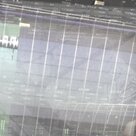 No man is an island. Even if you think you are DIY hardcore, finding like-minded folks who can help you goes a long way. A support network Maybe it's just me but personally, I find it a lot easier to get things finished when they're for someone else. Someone needs help with something, and I've offered to help them, it's a lot easier to get motivated to get the job done than if it was a personal project where I have nobody to please other than myself. lets work together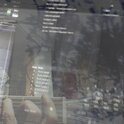 Starting with the easy thing or the hard thing? that's up to you to decide. I'd recommend knocking back the easiest tasks first, the ones that would take the least time to accomplish. The more difficult tasks might require some incubation time, new skillsets, or a network of friends to help you out. Do the workavoiding procrastination
Something is better than nothing It doesn't have to be perfect You'll get better with time See a door, open a door, you don't have to step through it right away. Check to see what's on the other side. If you see potential there, then start moving. the decision to take action - It starts with a choice. Remember the words we use in our own minds carry weight. The language we use in our internal dialoge affects our reality. No seriously. No more of this Someday i hope to ____. A better line of conversation is I am ____. These are called affirmations, and next time you catch yourself using language like hope, want, trying to, etc. Catch yourself and think about it for a moment. Are you trying to do something? or are you Doing it? going through the motions - Consistency of effort once you understand what you want, the next step is to follow through. How many artists I know don't do this. I was guilty of it myself. It's called Failure to launch syndrome. I get it, it's easier to just push your ambition aside and play some video games. Next thing you know it's 10 years later, and have to bust-ass to make up for lost time. If you're not doing something every day, start with 1 thing. If you're already doing something every-day, then start doing 3 things every day. It'll take dedication and preparation, but you can do it. Start Now. There are only so many hours in a day. How are you going to use them?Identifying problems |
Gene Media ProductionsCody Gene: Record Producer Music Methodology & Creative Lifestyle
#
All
Archives
April 2024
|
Categories
|
AboutGene Media Creative Studio is the Production Facility of Indie-Rock producer and songwriter Cody Gene.
|

Gene Media Creative Studio is located in British Columbia, Canada and creative Cody's creative space. here he explores ideas, creative vision, and technical aspects of independent music production + artist development.
|
Contact |

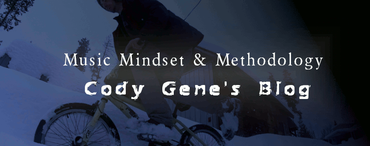
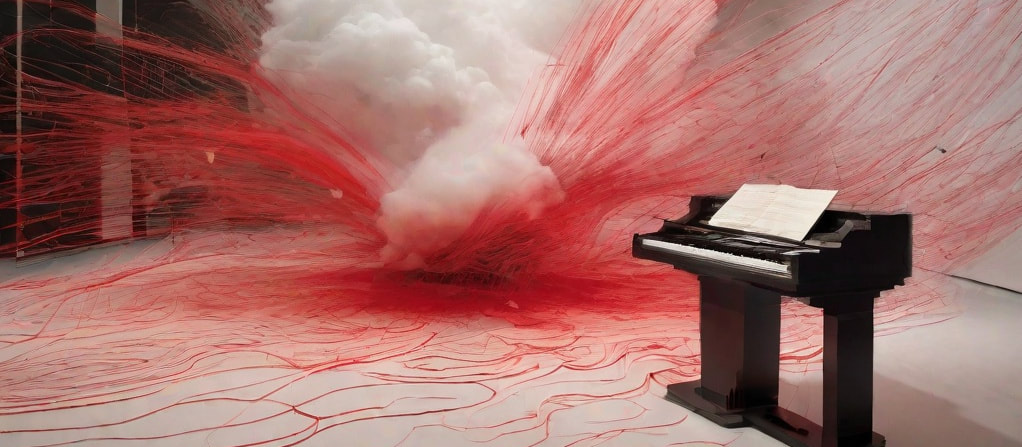
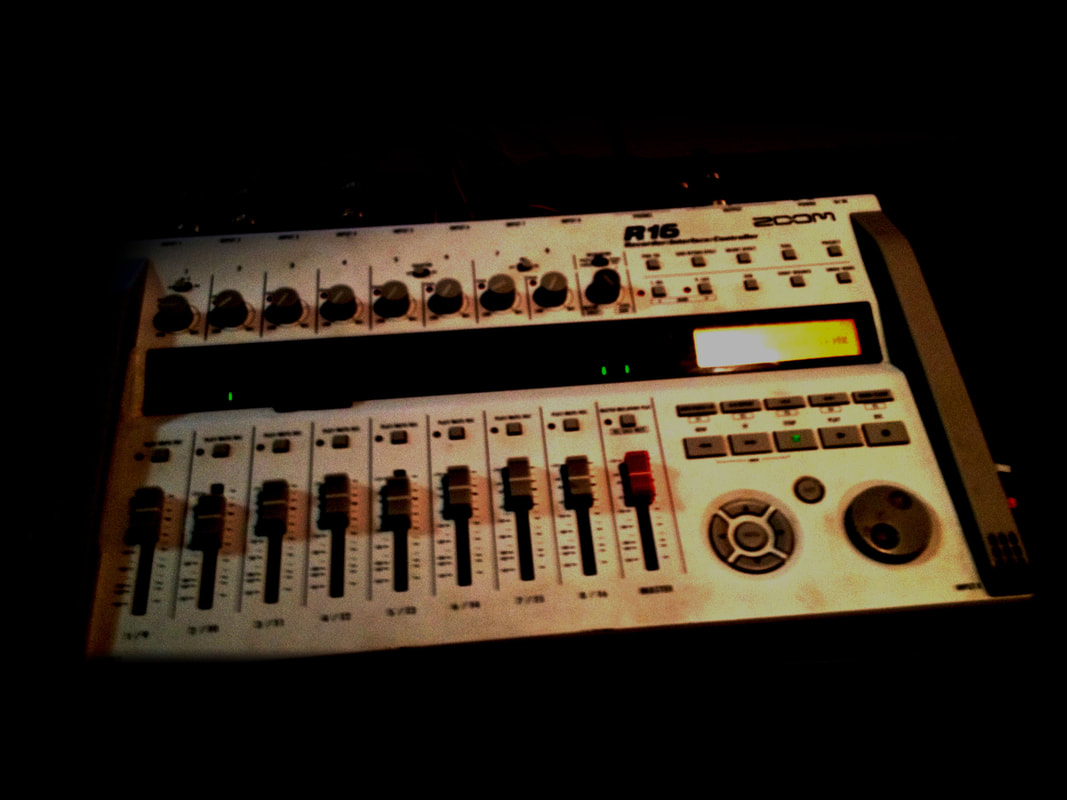
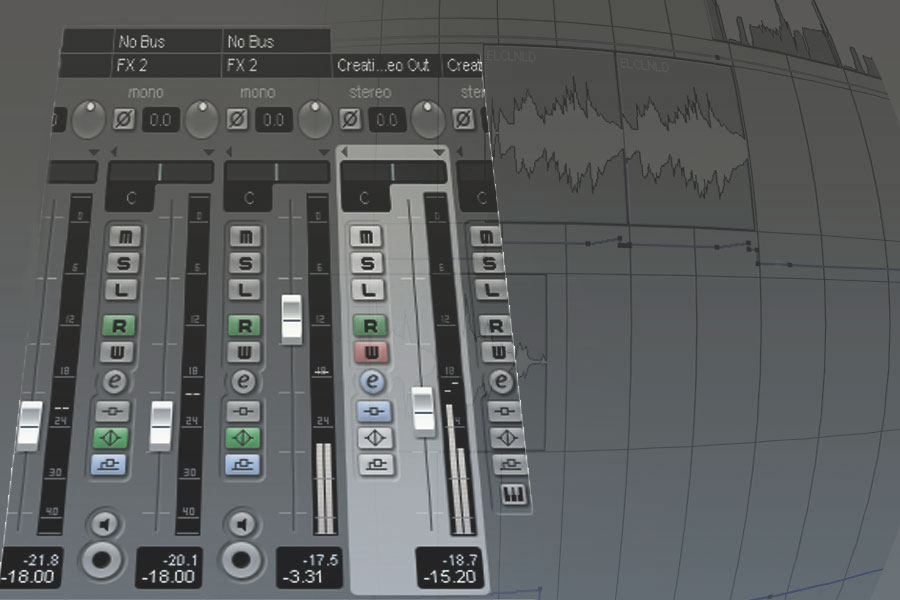
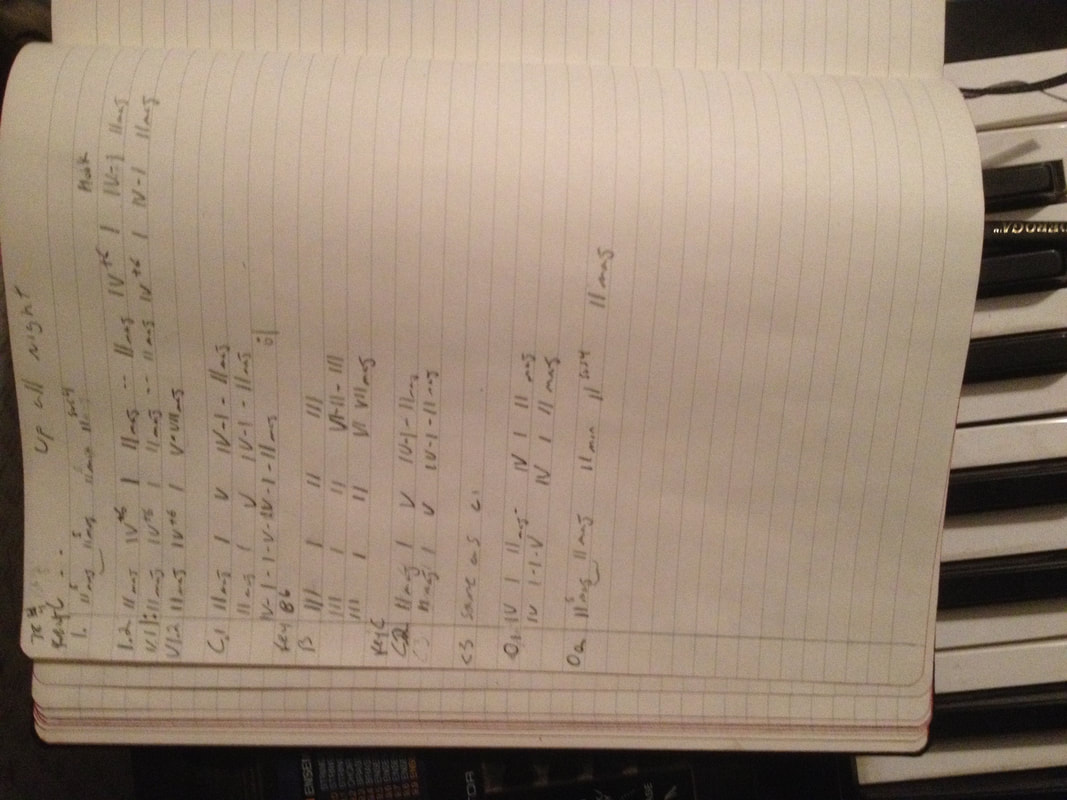
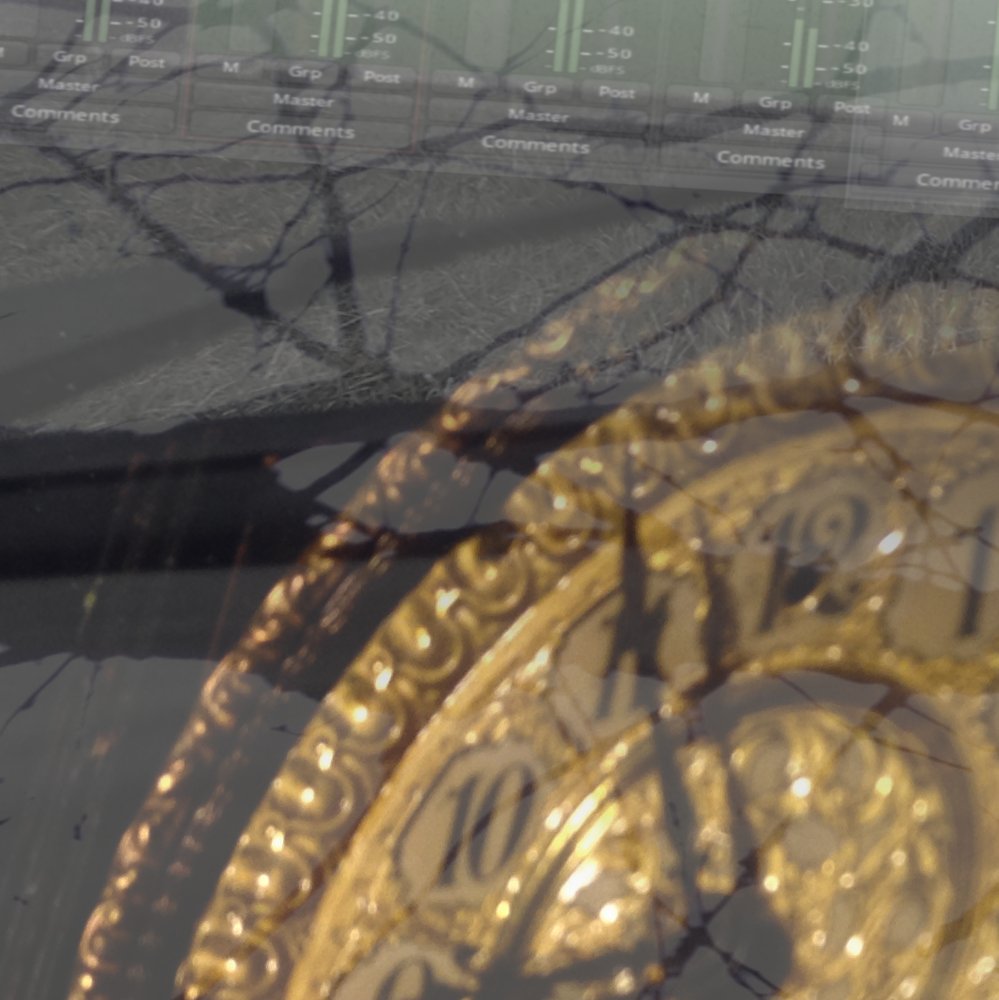
 RSS Feed
RSS Feed